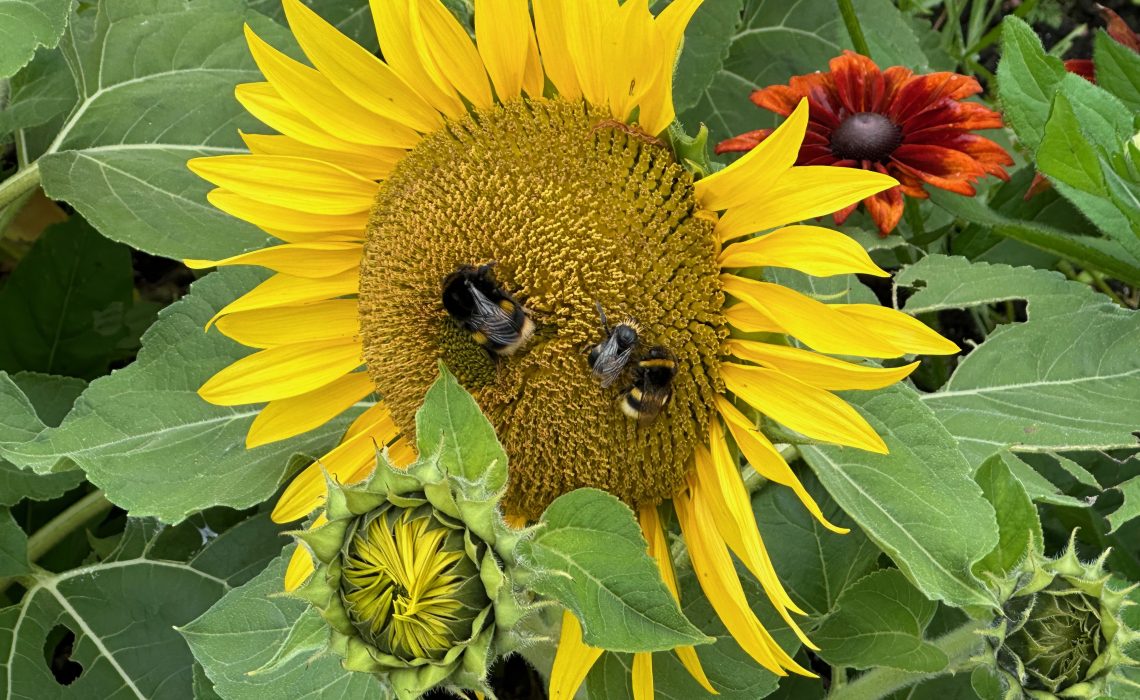
Inspiring the Next Generation
Chewton Glen is a glorious and luxurious place to stay, set in 135 acres of beautiful rolling grounds.
Would it surprise you that what excited me most was a tour around their waste management area by their very informed Deputy General Manager, Raymond de Toulouse Lautrec? Probably not by now…. just to prepare you for my ‘bin’ conversation!
But what’s this about the bees? My Dad was an avid gardener and I have fond memories of helping him tend our good sized garden of vegetables and flowers as a little girl. Everything was grown from seed, kept from the previous year. Plant cuttings and vegetable gluts were shared with neighbours as were gardening tips on what to grow with what to keep the bugs in check. Everything that could be was composted. He taught me all I know and his presence is always with me when I garden – not surprising, so many of my plants are from him!
My conversation with the Estate Manager, Darren Venables stirred those memories and really got me thinking about all that Darren told me he was trying achieve….
Listen to my audio introduction above
But first, let’s visit ……
A ‘sea’ of Brown Bins!
Can you imagine how much waste there is from this busy 58 bedrooms, 14 treehouses hotel? With a dedicated staff member, 7 days a week and a well organised estate yard they are rightfully proud of their recycling. Guests – especially in the treehouses – have a ‘food waste only’ bin but everything currently is hand sorted. Why? Well it only takes a guest to throw a cloth into the food waste bin and it’s scuppered!
Here’s a quick peak at that somewhat hidden estate yard:
Whatever can be composted is. Everything else is sorted with 12 – 14 blue bins of recycling weekly. Brown bins – food that can’t be composted – are picked up and incinerated. It’s quite an operation and one they take seriously.
Raymond recanted how he had seen progression from a sustainability perspective. For example, guests now generally expect to be able to opt for re-using towels and keeping your sheets more than a day – even in a 5 star hotel – thats a good start! I think we as guests can do a lot more though…
Some things still irked him. Pallets left behind from some food suppliers deliveries for example – there is supposed to be a new law against that coming soon. Food waste from the treehouse breakfast hampers was another. Lovely hampers are supplied through a secret door, into a cupboard ready for your breakfast – fresh loaves of bread, pastries, fruit, yoghurt, eggs – you get the idea. While you can ask for certain items to be included or not it’s a lot of food! Mostly it’s delivered in recyclable packaging and helpfully marked nut free for my allergies.
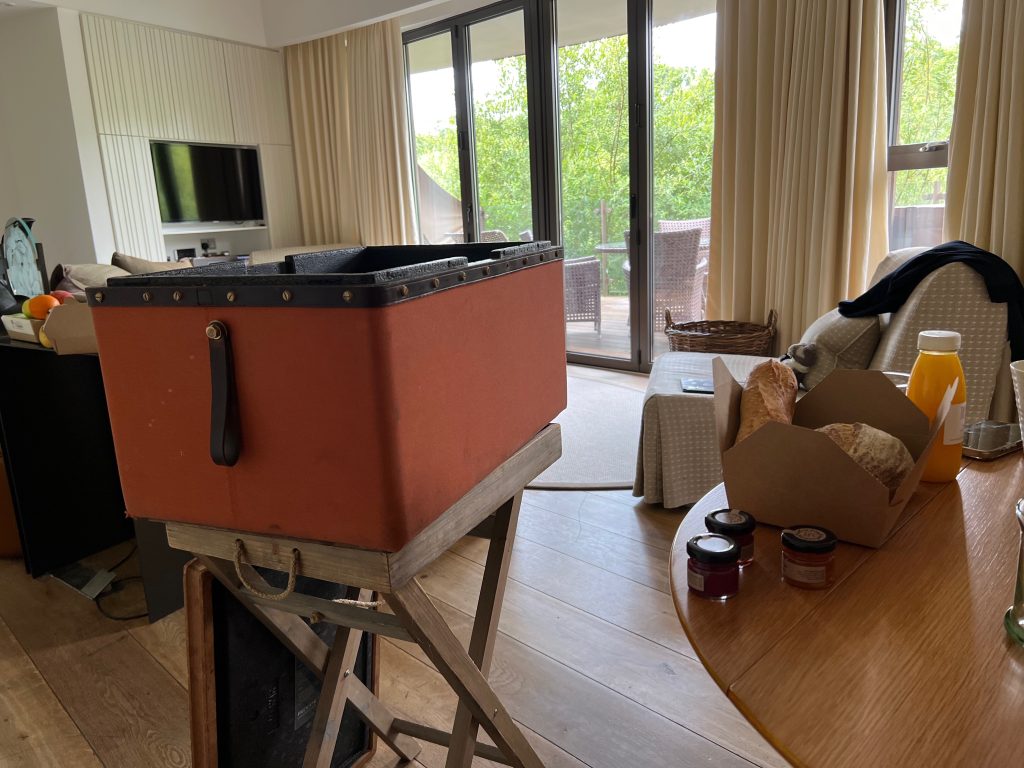
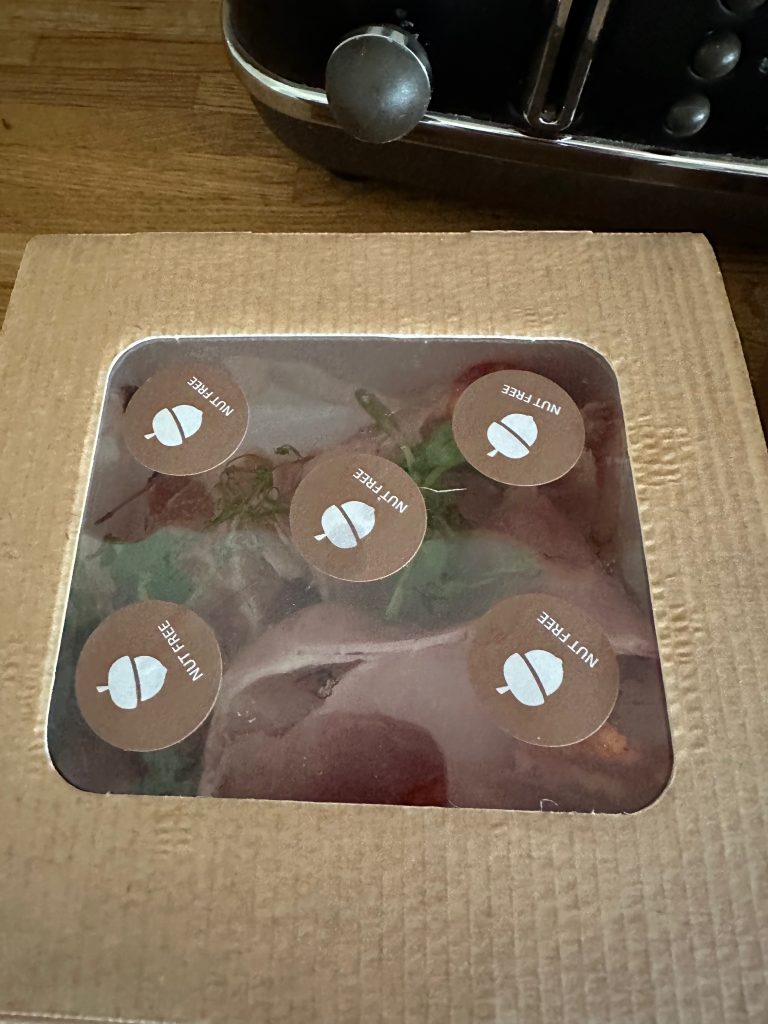
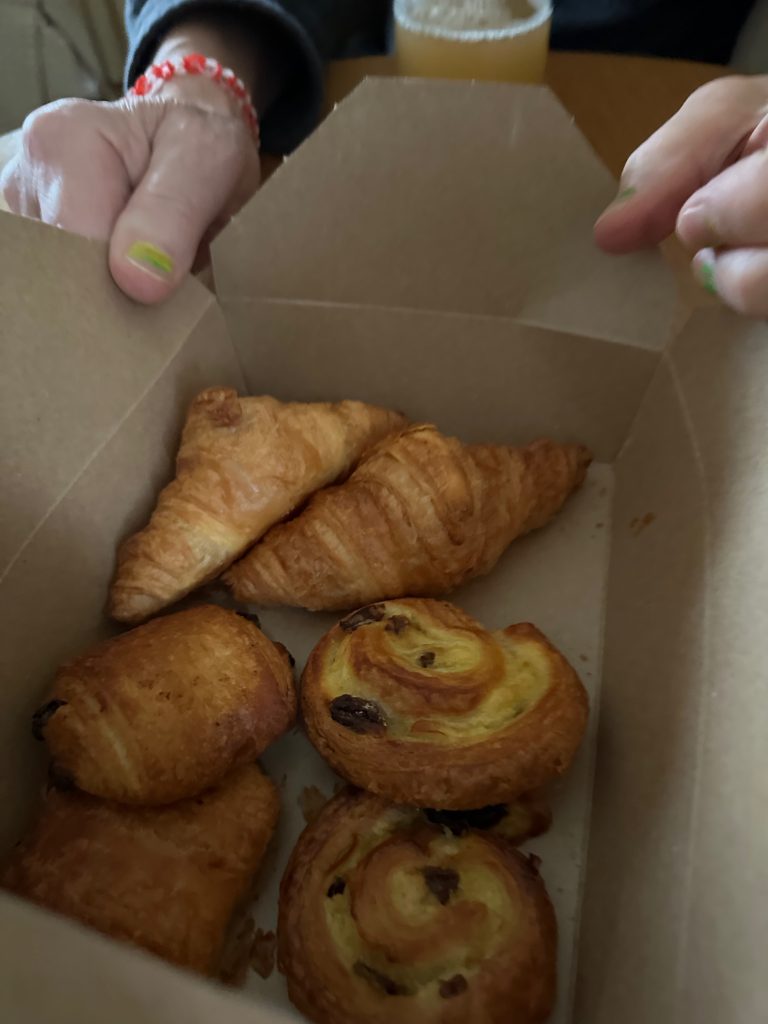
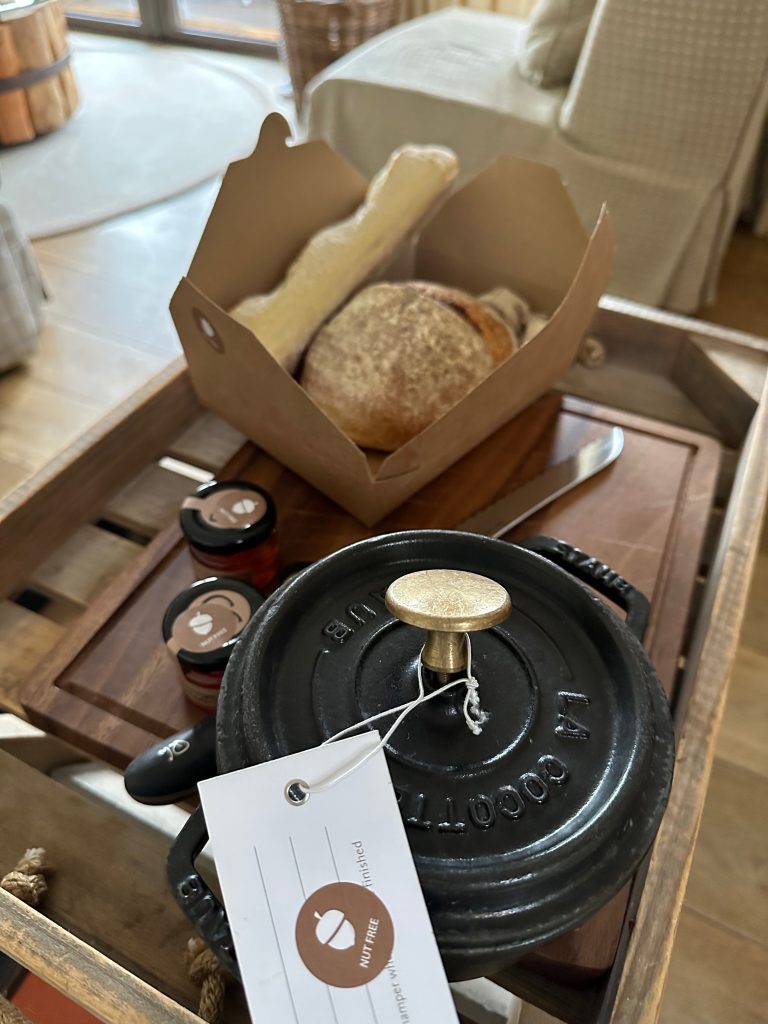
Breakfast AND lunch for us but I can imagine much is wasted every day – the hampers were about to reviewed because of this, so will report back next visit.
Support SueQsWorld Writing: Empower Creativity, Enrich Lives. It’s always optional but your Donation to SueQsWorld writing is more than just financial support; it’s an investment in creativity, diversity and the transformative power of words. Join me in my mission to enrich lives and inspire change. Every contribution, no matter the size, makes a difference. Click on the Donate button, top right hand side of the page for more information.
It’s All About The Bees on this 135 Acre Estate
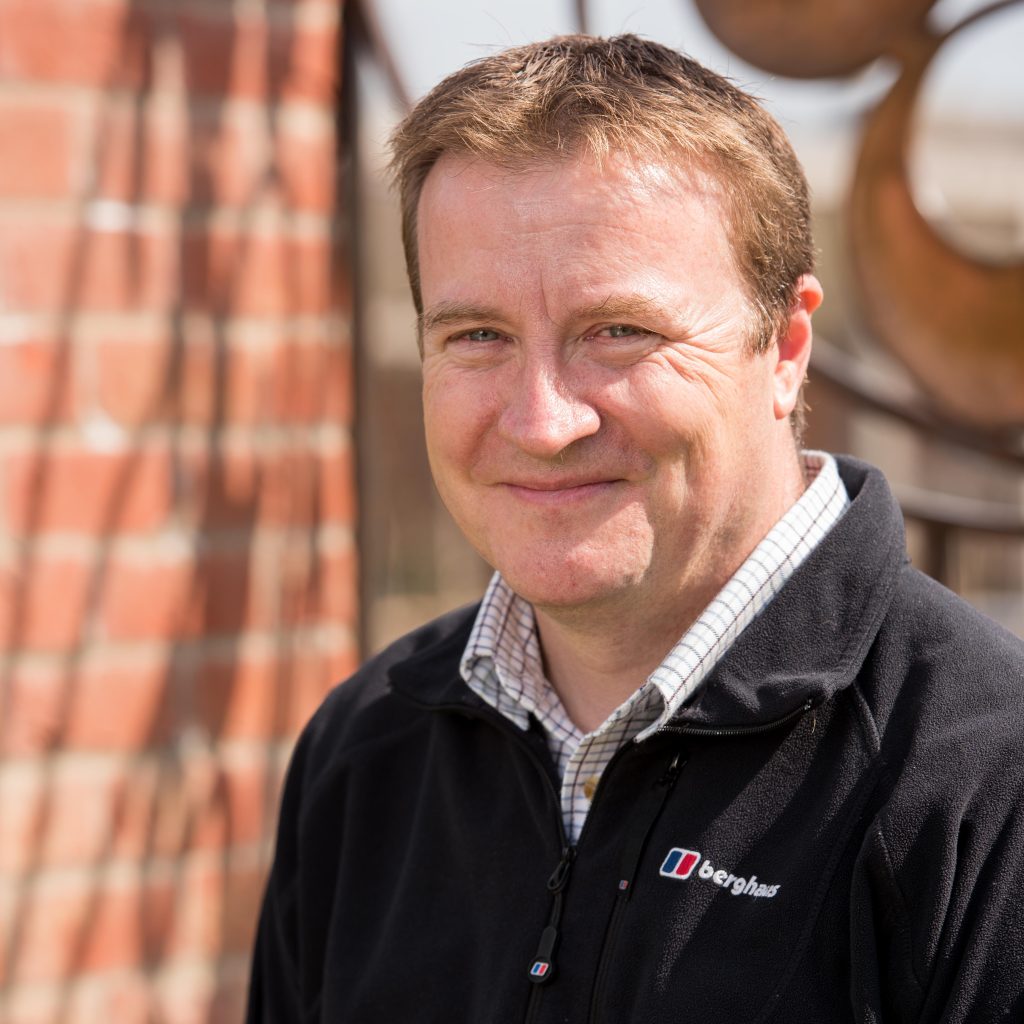
(c)KenRockwell.com (858) 453-2099
This garden team has its hands full! With 500 fruit trees, 70 beehives each with about 60,000 bees, the kitchen garden, ornamental gardens, growing mostly from seed in their plant nursery, high guest expectations of their colourful plant displays and the golf course to name but a few, thats a lot to manage. I want to delve into a few key things to note that you wouldn’t necessarily know by just visiting, but my biggest takeaways are Darren’s ethos to ‘manage the estate as his Grandad would’ and his quote that follows:
I want to inspire guests to take what they have seen home and share it with their grandchildren
Darren Venables, Estate Manager
The first hotel to have bees on a massive scale, some 12 years ago, you have to think differently about your approach. No mass use of pesticides! From planting ‘flat surface plants’ and older style plants like cammassia under the fruit trees, both for pollinators and the hoverflies that will eat up the aphids, to making the kitchen gardens no-dig – just hoe’ing off and mulching, they are using all of the traditional and often lost, gardening methods for pest control. Leaving the turf to the daisies and watering in nematode’s (natural parasites) to control vine weevil and other pests, through trial and error they are growing organically and have found that balance with nature and their guests high expectations.
Why No-Dig? Two-thirds of the world’s creatures live underground, all of those worms, woodlice, ants and grubs – its home to millions of organisms needed to maintain its health. By digging you can damage this ecosystem and the mycelium which is the fungal super-network existing underground that is vital to our plants and trees.
The kitchen garden receives much of the 20 – 30 tons of compost they produce, but it’s not nearly enough for the estate. Soil quality is an issue especially potting on young plants and bedding plant pots. Having tried many of the peat free soils, with disappointment the end result, they have gone back to partial peat based soils for this part of the growing but its composted back in and therefore re-used, minimising their peat use. Plastic plant pots are another concern and they buy up any old-fashioned, thick pots they can find – they can re-use these time and time again. Modern ‘less plastic’ and plastic free versions just don’t work. Oh, don’t forget, if you visit in the summer, check out their tomato and chilli houses – they are open for everyone to walk through and be inspired.
These two examples are interesting to dwell on for a moment – quick fixes and knee jerk reactions looking to minimise plastic, find alternatives to peat and now what on earth we are going to do with all of those batteries from electric cars etc, don’t always work out as expected. We don’t necessarily have the technology and knowledge in place yet – but in ten years time? Lets hope so…
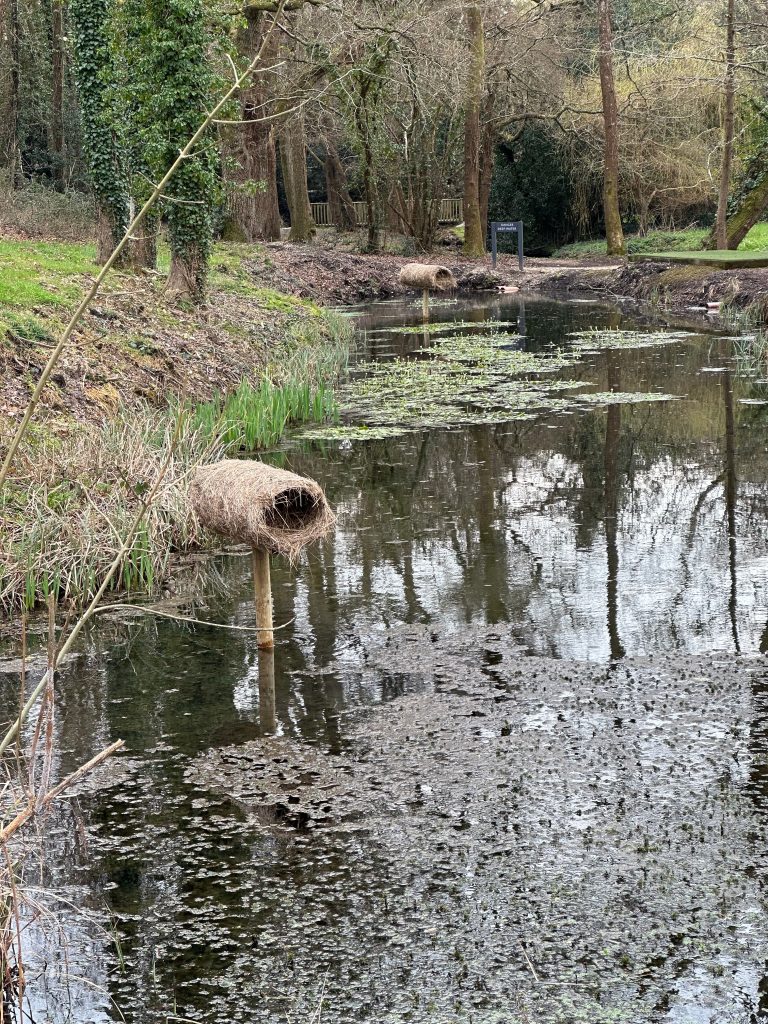
Creating a Bird Supermarket
With around 180 bird boxes on the estate, replenished with around 60 new ones each year, they have a lifespan of about 3 years before perishing. Perfect because the boxes can get infested. Not healthy for the birds but great for biodiversity and the bugs. Also good for the insects, they manage their trees so they can decline over a period of time, with regular surveying for safety.
They have created a ‘bird supermarket’ with an environment that encourages grubs and bugs, with multiple feeding stations as back up in the winter months.
Inspiring and Sharing
Five hundred fruit trees and berries galore, they can only use a certain amount – gluts are no problem, they open up the orchards to their staff and their families. Darren delights in the fact that all generations come and enjoy the fruit picking – and eating! They also have a lady that forages the grounds using those courgettes that have become a marrow and whatever berries she can find to make jams and jellies – yum!
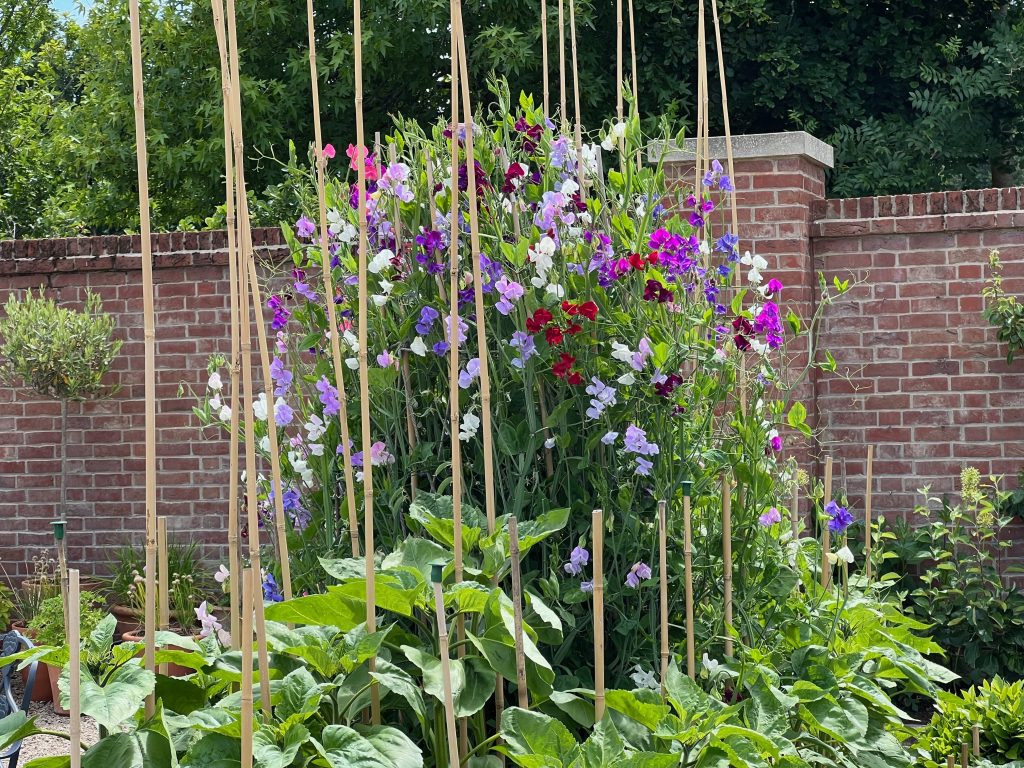
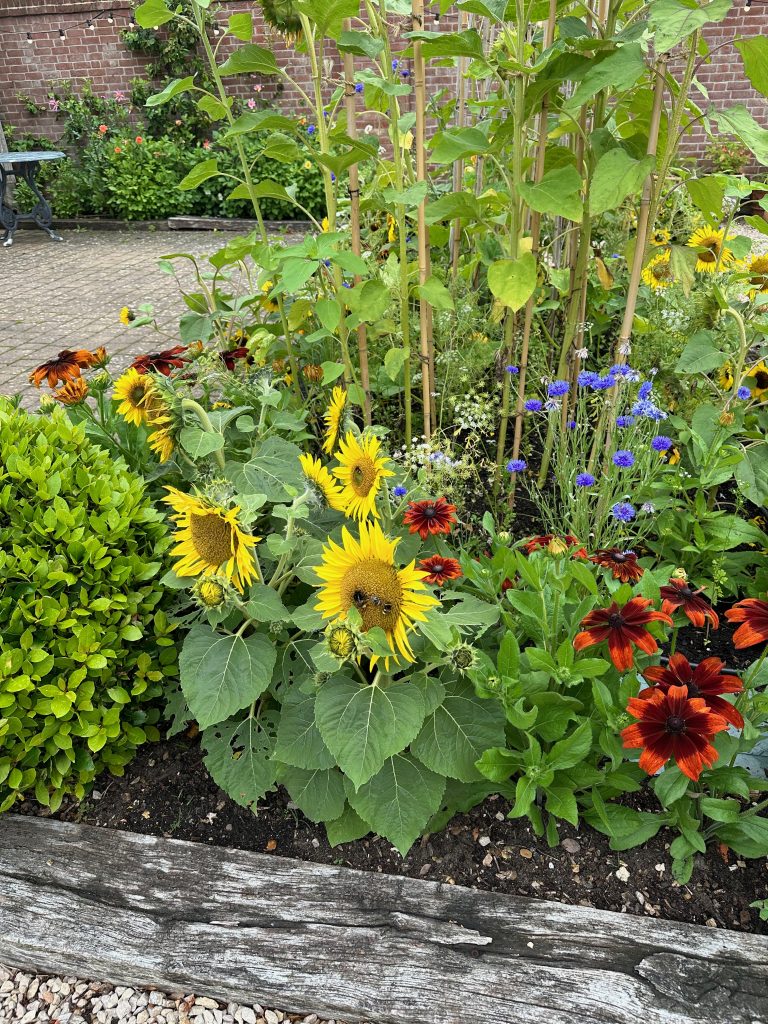
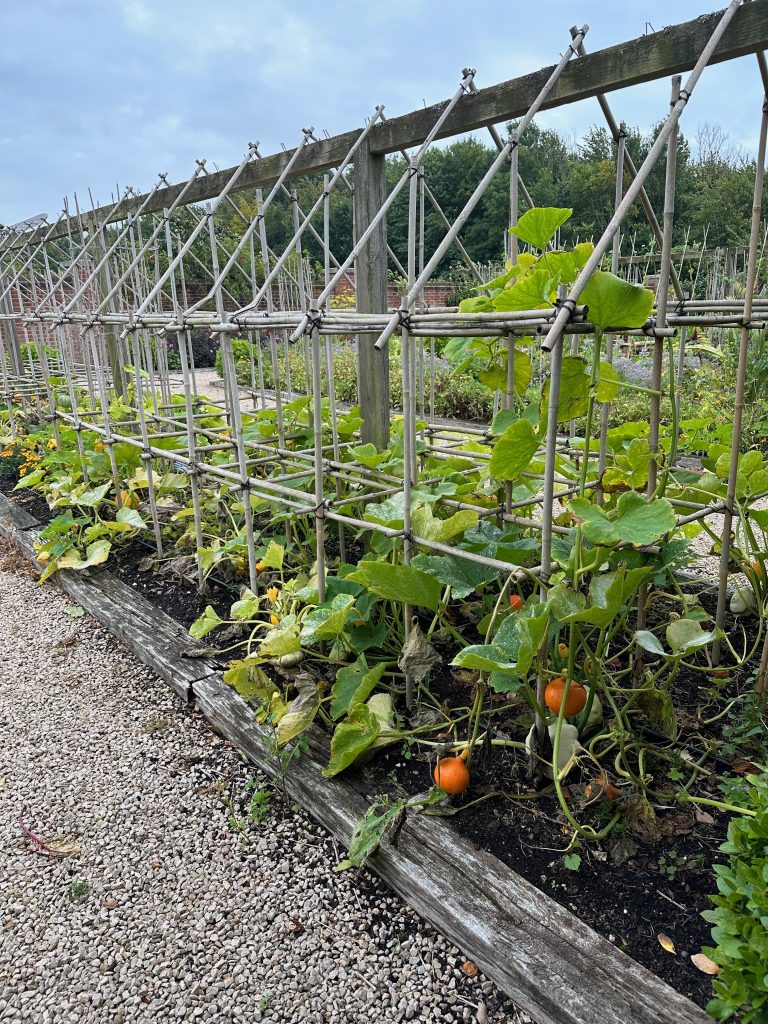
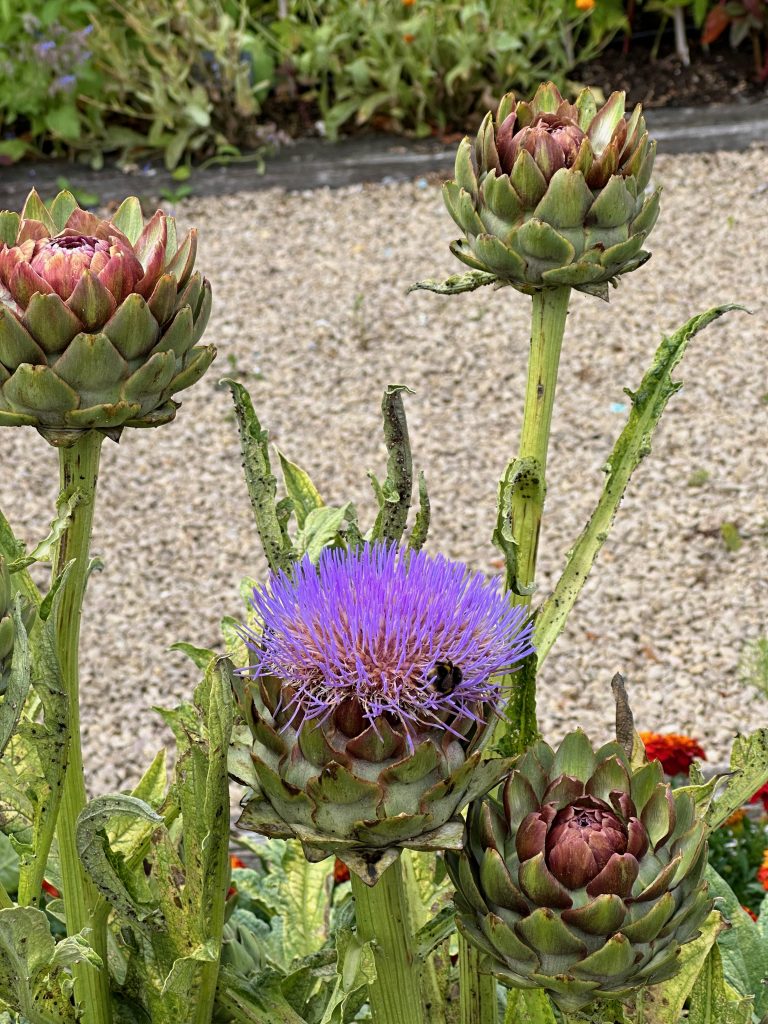
These are great times for him and his staff to inspire all ages, showcasing old-fashioned plants, sweet peas and sunflowers and discussing why there are particular flowers growing under the fruit trees, planting his own seeds in guests and staff’s minds alike to take home and try. And experimenting with leaving some crops to go to flower such as pak choi – letting them flower, eating the leaves, enjoying how pretty it looks amongst the other flowers and the bees love it. Another inspiring idea to take away – ‘edimentals’ Darren called it…
Let me leave you with this tale that really helped me to get the measure of the deep thinking and consideration of this team. A construction road had to be put in when they were building the treehouses. Once done, rather than rip it out and send materials to landfill they kept it in as a road but put in 2,500 hawthorn trees creating 2 ½ kms of hedgerows. Now that’s thinking outside of the box, on the side of our environment.
Sometimes ‘sustainability’ transitions at a hotel are all about a gradual change of approach and of course experimentation to see what works. Speaking with Stuart van Dam, Director of Purchasing, with responsibility across the wider Iconic Luxury Hotels group which includes Cliveden House, 11 Cadogan Gardens and the Lygon Arms, I was surprised to learn how many things they had implemented, tried to implement with surprising results, and through that very open conversation began to get a real feel for what challenges them. There is so much to tell you about this place, it’s going to have to be a mini series! Will give me a GREAT excuse to go and stay again.
